Title |
Printing Wikipedia – A Chronology |
Author |
|
Date |

PediaPress, 2007
“PediaPress.com is an online service that lets you create customized books from wiki content. Simply add any articles you like into a Collection, and then click to order them as a paperback book. Covers, a table of contents, a detailed index and a list of figures are generated automatically, and the books are printed and shipped within 2–3 business days.”
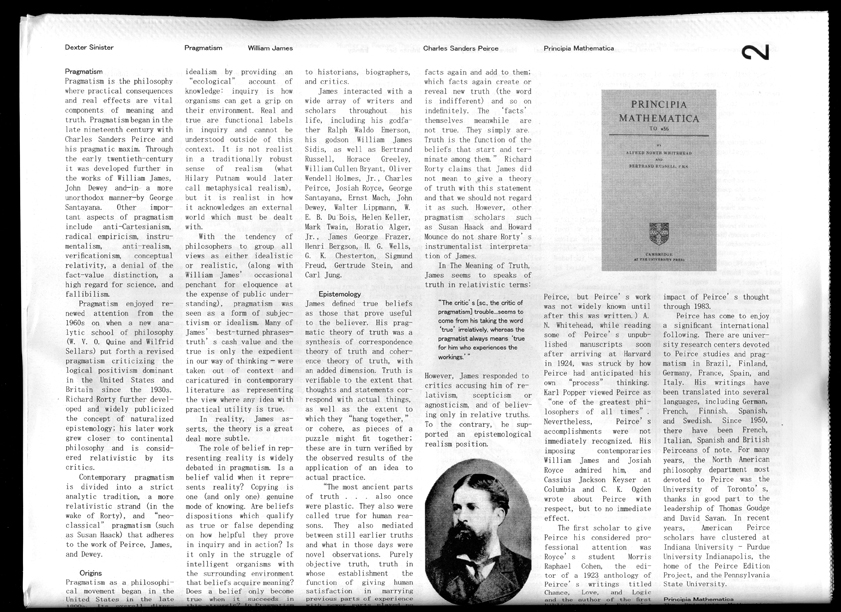
A Wikipedia Reader, Mylinh Trieu Nguyen and David Horvitz (eds.), 2009
“What follows is the documentation of 23 travels within Wikipedia (navigating from article to article via a connecting hyper-link, producing a string of connecting articles). The string of articles produced by each travel can be understood as a kind of mental-map: a wandering in thought, or a deeper continuous investigation. The decisions that each contributor made will hopefully produce not only an array of interesting subjects, but also serve as a kind of supplemental reader to their own creative practice.”
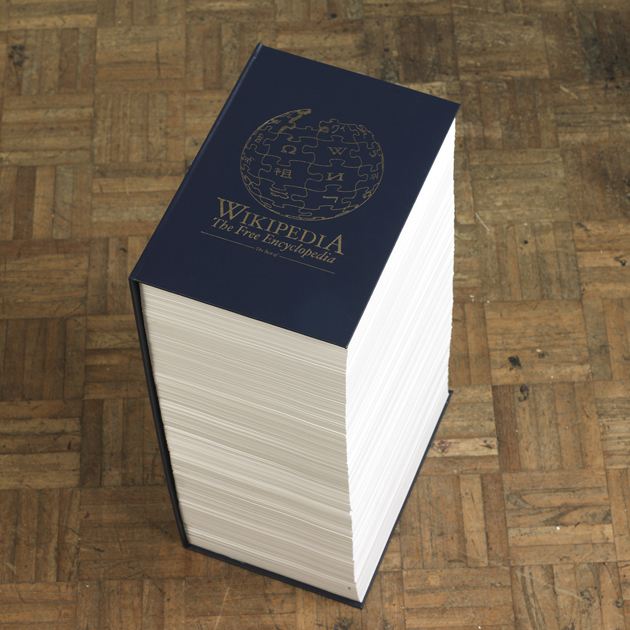
Wikipedia as Printed Book, Rob Matthews, 2009?
“This Wikipedia book has some 5,000 pages and it’s a compilation of 400+ featured articles all picked from Wikipedia. (0.01%)”
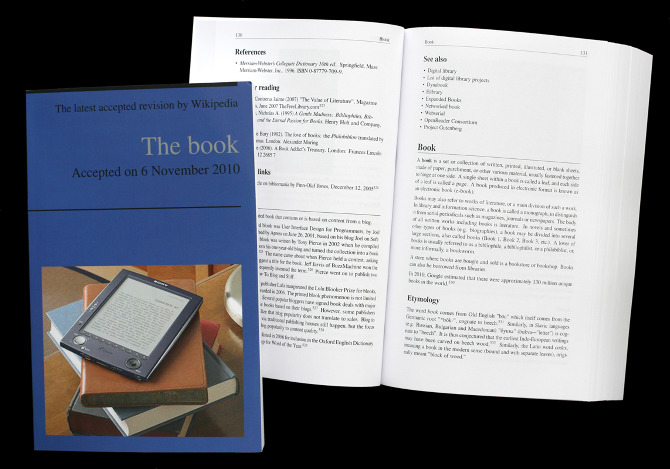
The Book, Benjamin Shaykin, 2010
“A two-volume set, spanning almost 1400 pages, created using Wikipedia’s own print-on-demand service. Includes everything from the Amazon Kindle to the Library of Alexandria, from the Public Domain to the World’s Largest Book.”
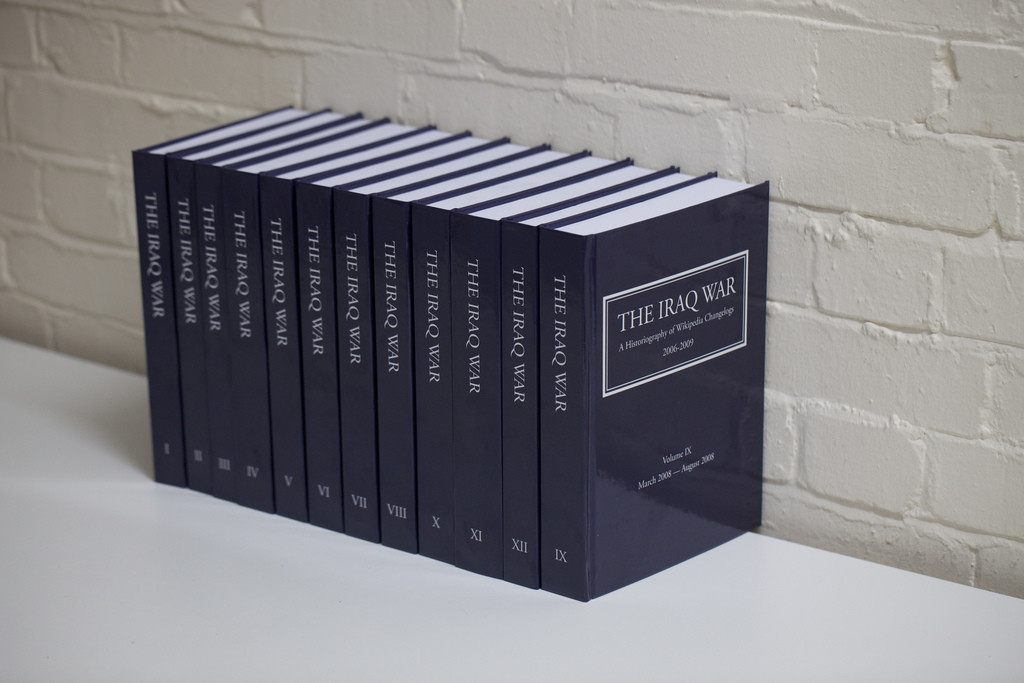
The Iraq War: A History of Wikipedia Changelogs, James Bridle, 2010
“A twelve-volume set of all changes to the Wikipedia article on the Iraq War. The twelve volumes cover a five year period from December 2004 to November 2009, a total of 12,000 changes and almost 7,000 pages.”

The Wiki Truth, Kyra van Ivelden, 2012
“For making the books, I asked ‘Wikipedians’ what the most large articles were on Wikipedia. They gave me a top 100; and I decided to print the top five. I spend days with downloading, each article is about 3000 pages long. I printed those, on my home-printer, and finally made classic encyclopedias of it. On the bottom of the book you read the first sentence that was ever written in this article; and at the top of the book you see the article as it is now.”
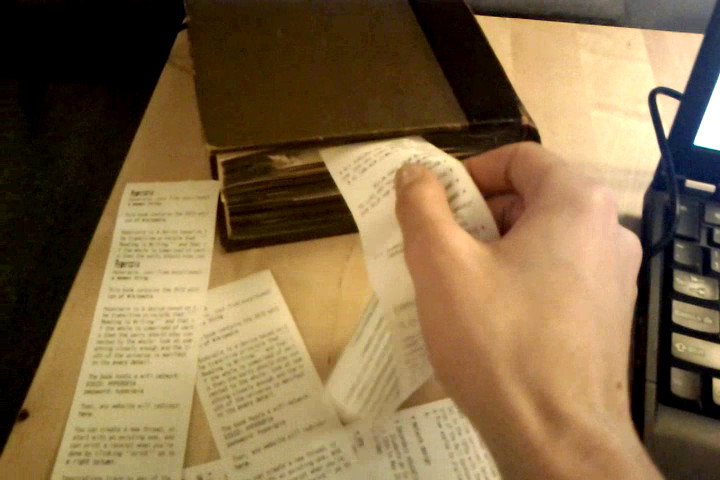
Hyperopia, Robert M. Ochshorn, 2012
“Hyperopia hosts a wifi network, which redirects all web traffic to its internally-held contents. Any website a user on the network attempts to reach will redirect to the book’s UI, where they can create a new associative thread, or resume with an existing one. If multiple people are connected to the book at the same time, they can share a drift together. Links open inline and persist in a sidebar along with any text that is selected; the sidebar can be printed from the book as a receipt. In addition to displaying the contents of Wikipedia, pages can be augmented with wikitext and attachments that will stick to the page.”

Photo: Library of the Printed Web.
Wikipedia Random Article Collection, Lauren Thorson, 2013
“Wikipedia Random Article Collection is a growing archive of zines inspired by content generated from Wikipedia’s random article search function. By clicking once, participants use Wikipedia’s random article search function to generate endless content. Each zine is inspired by and created from images and text found in the generated article, as well as any wikipedia worm-hole discovered.”
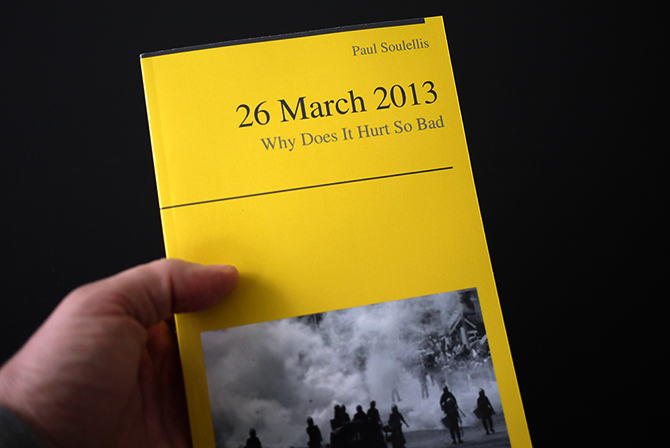
Chancebooks, Paul Soulellis, 2013
“Chancebooks is a publishing-on-demand experiment using Wikipedia and chance operations. Each Chancebook is a one-of-a-kind collection of up to 100 randomly pulled articles from Wikipedia. The selection and sequence of content is generated in real-time as I repeatedly click the “random article” button that appears on all Wikipedia pages and individually add each page to the book. The total number of articles is determined by first pulling a random number (1–100) at random.org.”

Twentysix Wikipedia Articles, Angela Genusa, 2013
“An homage to Ed Ruscha’s Twentysix Gasoline Stations. Digital print-on-demand, edition of 26, perfect binding, 5.5 in. x 8.5 in., 475 pages.”
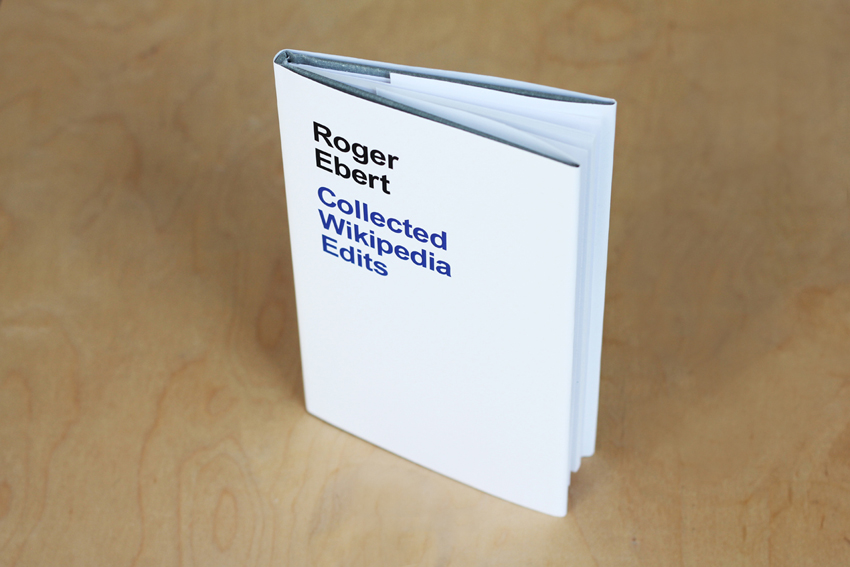
Roger Ebert – Collected Wikipedia Edits, Quenton Miller, 2014
“Roger Ebert, the Pulitzer Prize winning film critic, was a likely – but never confirmed – Wikipedia editor. The edits in question were made under the name ‘Rebert’, and are collected in this single-edition hardcover.”
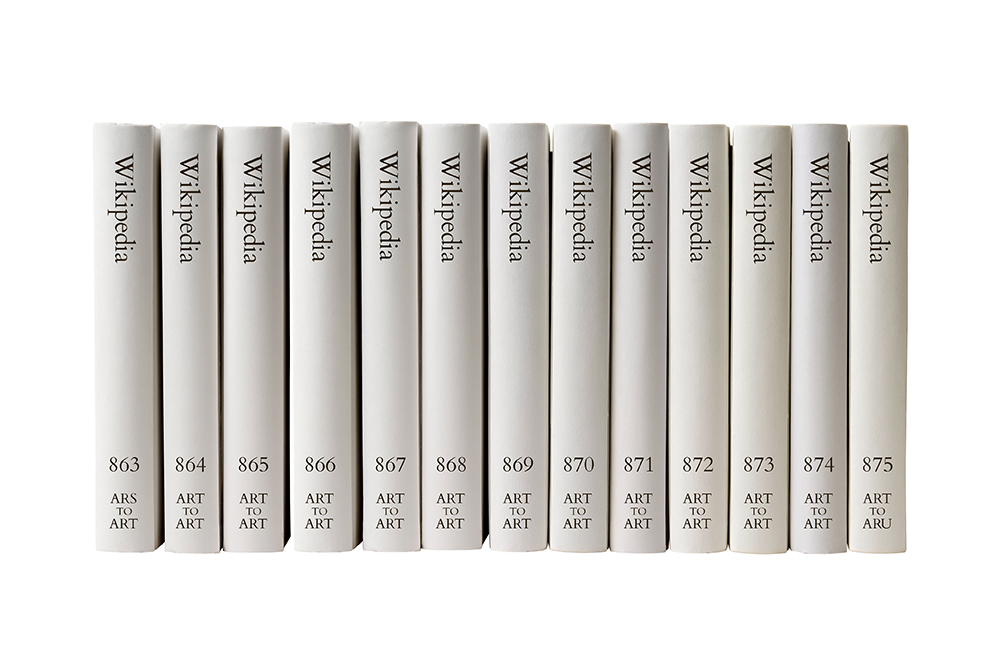
Print Wikipedia, Michael Mandiberg, 2015
“Print Wikipedia is a both a utilitarian visualization of the largest accumulation of human knowledge and a poetic gesture towards the futility of the scale of big data. Mandiberg has written software that parses the entirety of the English-language Wikipedia database and programmatically lays out thousands of volumes, complete with covers, and then uploads them for print-on-demand. Built on what is likely the largest appropriation ever made, it is also a work of found poetry that draws attention to the sheer size of the encyclopedia’s content and the impossibility of rendering Wikipedia as a material object in fixed form: Once a volume is printed it is already out of date. The work is also a reflection on the actual transparency or completeness of knowledge containers and history.”